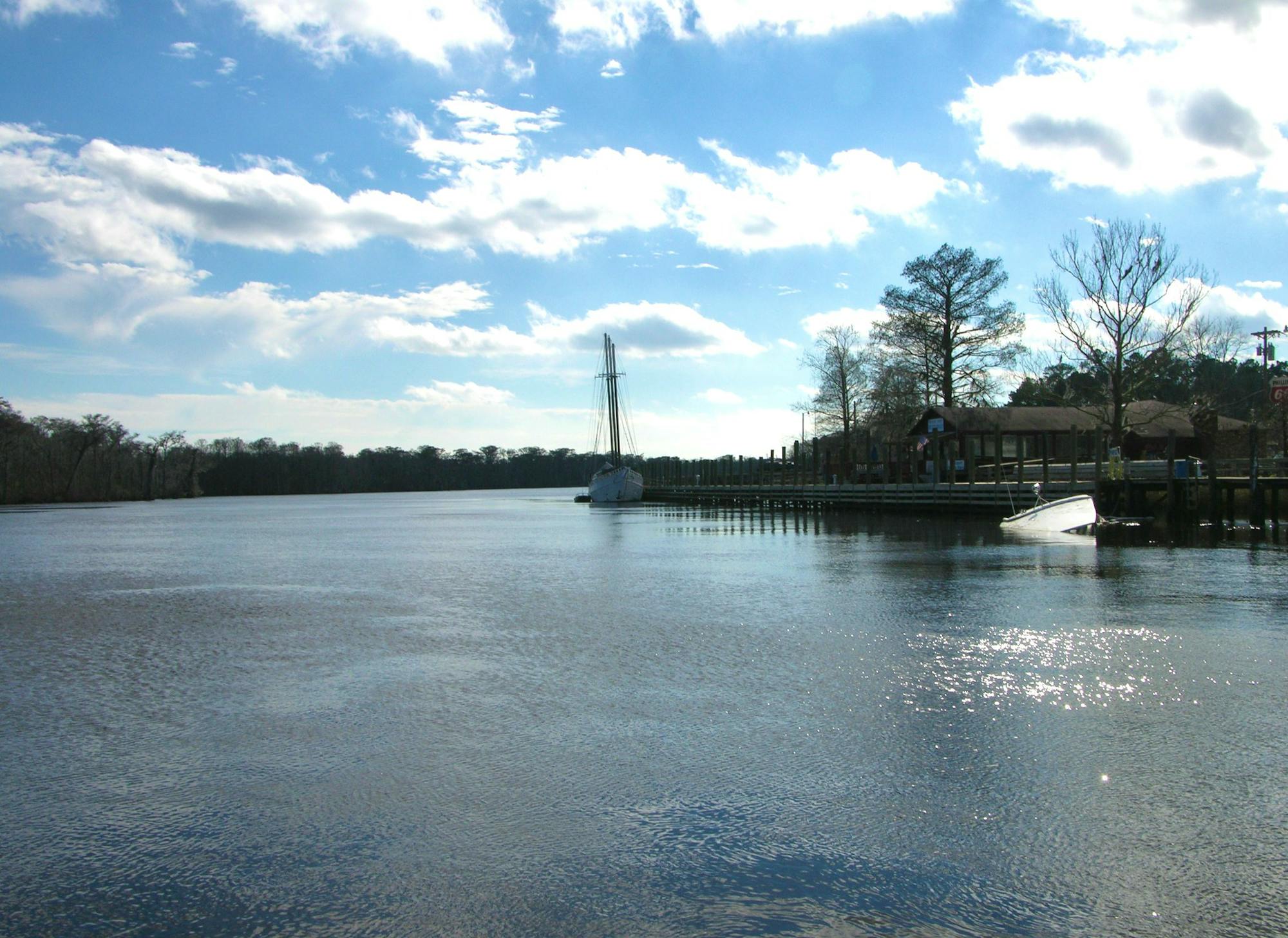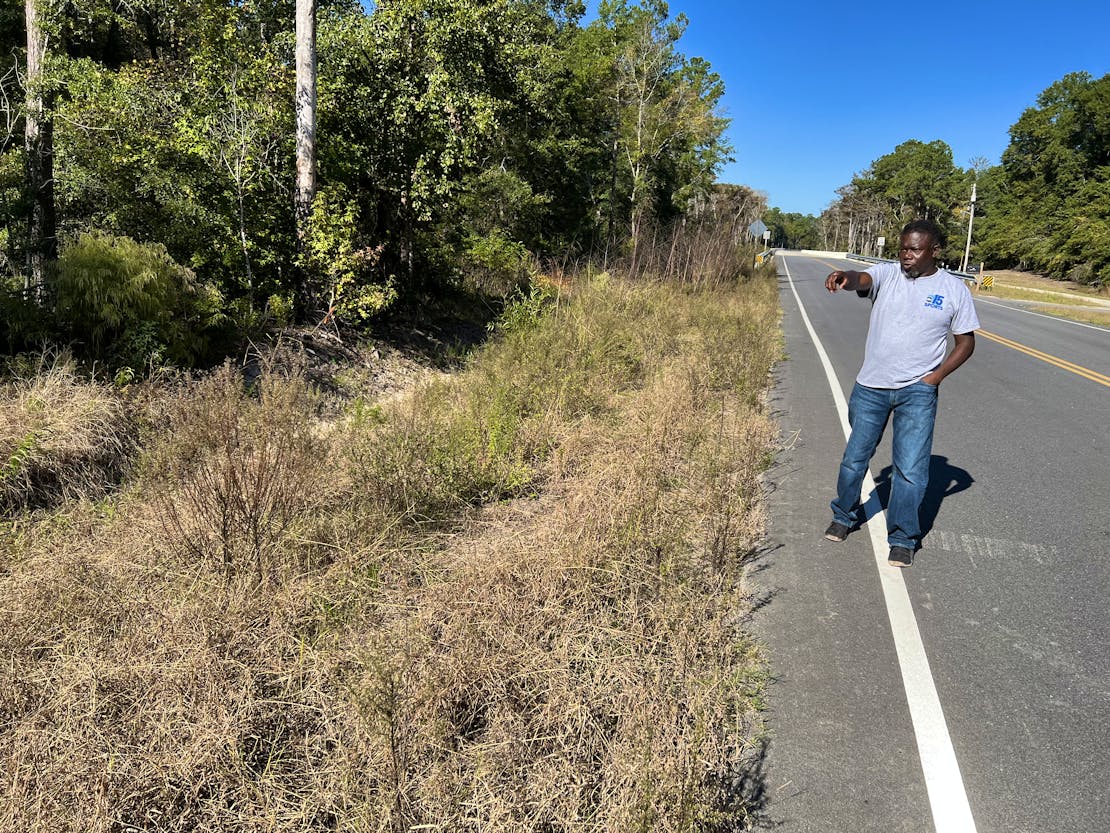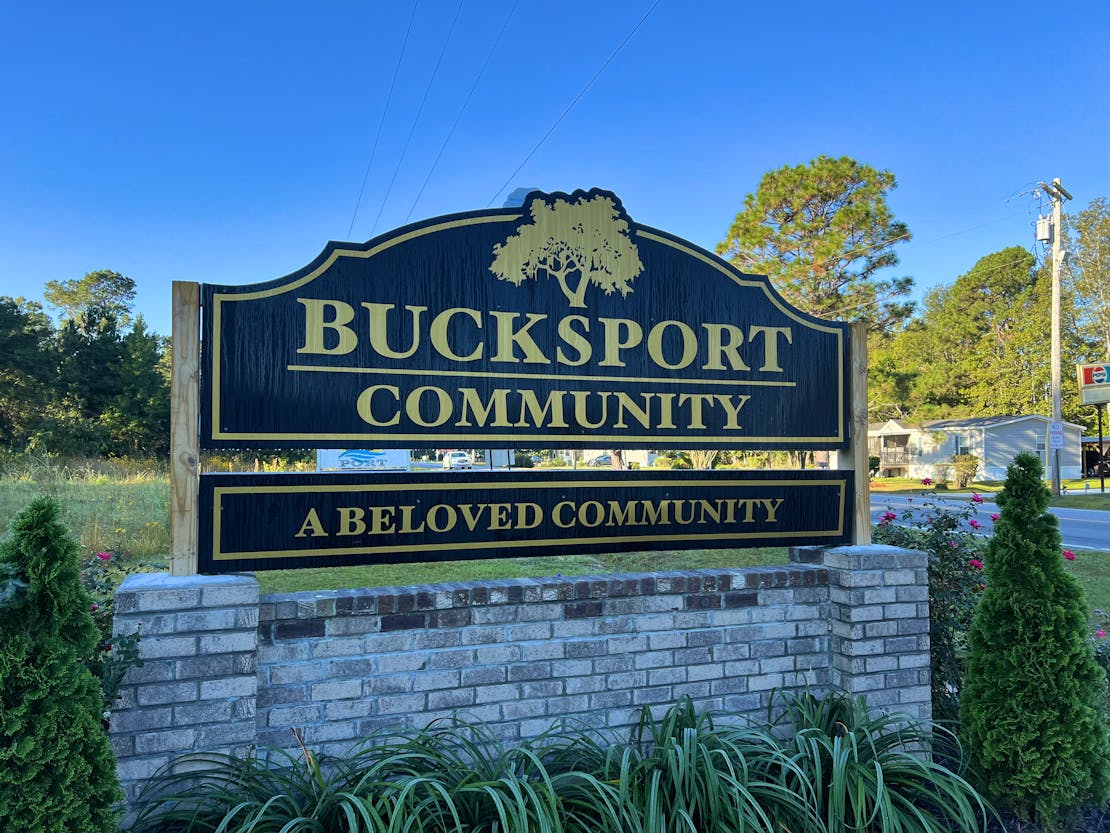The South Carolina Lowcountry is a region full of marvels - both of the historical and ecological variety. There's no shortage of wondrous sights from the sandy beaches to the sea islands, to Francis Beidler National Forest and all the rich biodiverse wetland ecosystems spanning from border to border down the coastline. These low-lying wetlands – which we affectionately refer to as swamps – provide a safe haven for many endangered species, endemic wildlife and communities of people as well.
One such community is the small village of Bucksport in Horry County. Bucksport was established by one of South Carolina’s largest slaveholders in the 1820s as the site of a crucial lumber mill, with river access. Many of the residents of Bucksport can trace their ancestors back to the enslaved people that used to work in the mill and their descendants who bought land in Bucksport after the Civil War. Today, Bucksport is a predominantly Black community of 700-800 with a rich culture that is, in many ways, tied to the watery landscape that many generations have called home.
That water, however, has been rising.
Bucksport has been inundated with catastrophic flooding for many years, and this flooding is increasingly more severe and chronic with each passing season. It’s no secret that climate change and rising sea waters have a deep impact on the South Carolina coastal regions, but what makes Bucksport such a serene refuge for many also causes dangerous conditions in severe weather. The abundance of rivers and wetlands nearby make even the higher land that Bucksport is built upon prone to flooding. As our rain events become stronger and last longer – so does the suffering of Bucksport. Some citizens of Bucksport have been displaced from their homes for more than six years, unable to repair flood damage.
Bucksport is a an example of how inheritance of property issues negatively affects families and individuals and strips them of their autonomy to manage or improve their land. Many Bucksport occupants live in what’s called an “heirs’ property,” which means that they inherited the property from a family member but there was no written or formal will. Their names, therefore, aren’t on the title deed to a property. This was a common occurrence historically in communities without access to, or that could not afford, lawyers.
Lack of clear title to land is a barrier to securing conservation easements to protect natural water storage capacities or incentives for land improvement or restoration. Property owners cannot receive state or federal funding to repair damaged homes or implement flood mitigation techniques as they lack the required paperwork. Additionally, Bucksport is in a highly-sought-after area of a booming county, and predatory developers lurk around every corner. Horry County is among the fastest-growing regions in South Carolina, and rural towns like Bucksport sit in glaring juxtaposition with busy areas like Myrtle Beach, Conway and Garden City. Road construction and land clearing in the surrounding areas causes more strain on the existing wetlands, impacting the ecosystem services these wetlands provide.
Recognizing this unique situation – an underserved community facing a host of environmental challenges, made entirely worse by policy hurdles and political red tape – a group of dedicated conservation groups including Defenders of Wildlife decided to put their heads together and look for solutions. The Bucksport Community Partnership was formed as a coalition for the purpose of helping Bucksport adapt to the changing conditions in their town, and weave climate change resilience into the community fabric so that Bucksport could continue to thrive moving forward.
"Bucksport is a Gullah-Geechee community that has experienced five catastrophic floods in seven years – and only one was due to a hurricane. While much of this flooding is due to climate change, uncontrolled development in Horry County is exacerbating their flooding problems,” says Rick Savage, executive director of the Carolina Wetlands Association. “Our partners are working with the community to gather local knowledge about the flooding regime, and we plan to use that information to create hydrological modeling for the area. This will help us determine which restoration alternatives will best help to mitigate and reduce the flood impact to this culturally important community."
The partnership has started tackling challenges with flooding, both with hands-on efforts and through research. We are installing rain gardens throughout the town, alongside community members who love to garden, and who love learning about which plants help with soaking up rainwater. In turn, the community members teach us which plants are culturally meaningful to them and have significance passed down through the generations. On a much, much larger scale, a comprehensive hydrological assessment and wetland restoration plan, to reduce flood risk, has been funded and will begin in early 2023. This assessment will not only study the hydrology of the area, but it will also engage the community to collate local and historical knowledge, identify areas of concern, and gain input on project development and education, regarding living so closely with water. The co-benefits of this endeavor include improved water quality, improved habitat for terrestrial and aquatic wildlife, shoreline stabilization and flood protection.
Maintaining ownership is a high priority for the Bucksport community to preserve individual wealth and a connection to land. As I said before, many of these families are direct descendants of the enslaved people that were forced to work the land they now own themselves. Policy tools, like forced sales of “heir property” or compulsory floodplain buyouts, may come across as low-hanging fruit for solving chronic flooding issues and climate change mitigation, however they do not consider the dignity or equity of the communities who are forced to leave their homes behind.
Instead of uprooting families from lands they’ve called home for many generations, state and local governments should seek to work with at-risk communities to build resilience and adapt to climate change challenges. Defenders of Wildlife is working to support the Bucksport community to become resilient to the threats of climate change and to conserve their local and natural history and protect their cultural identity.









Follow Defenders of Wildlife
facebook bluesky twitter instagram youtube tiktok threads linkedin